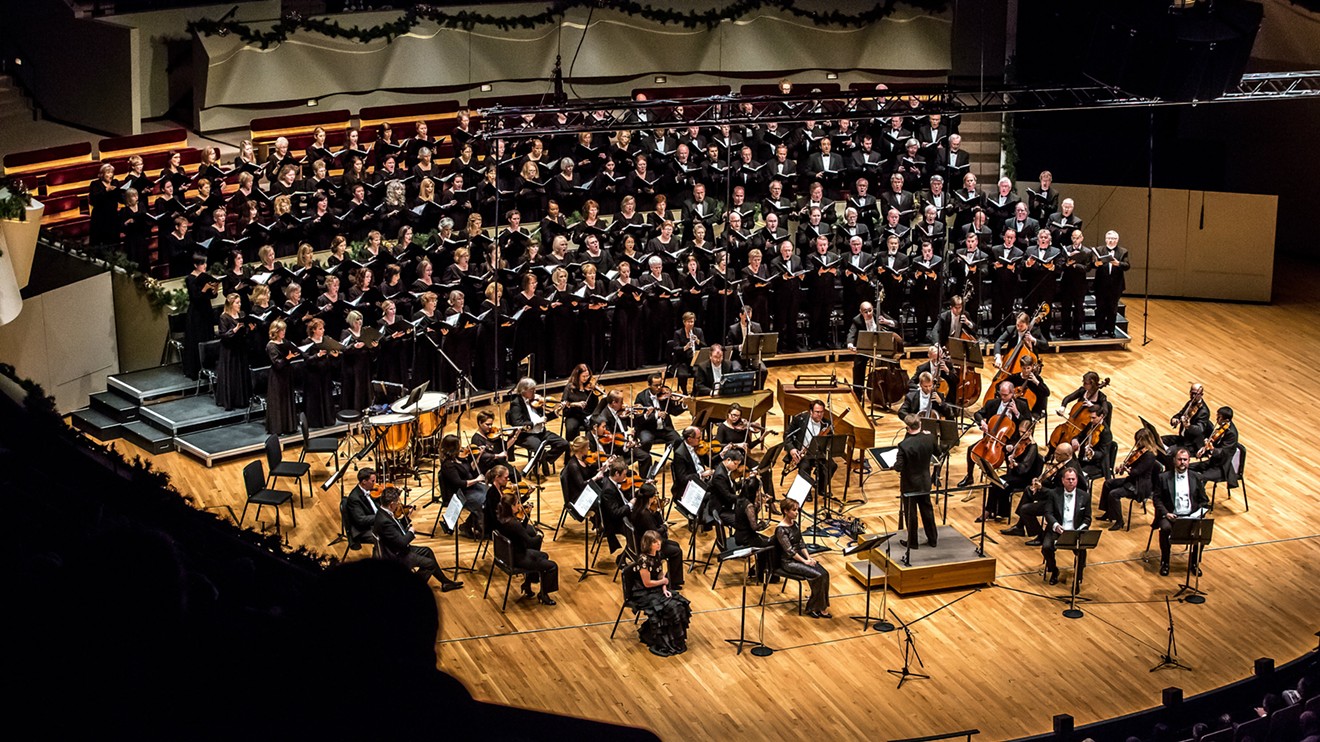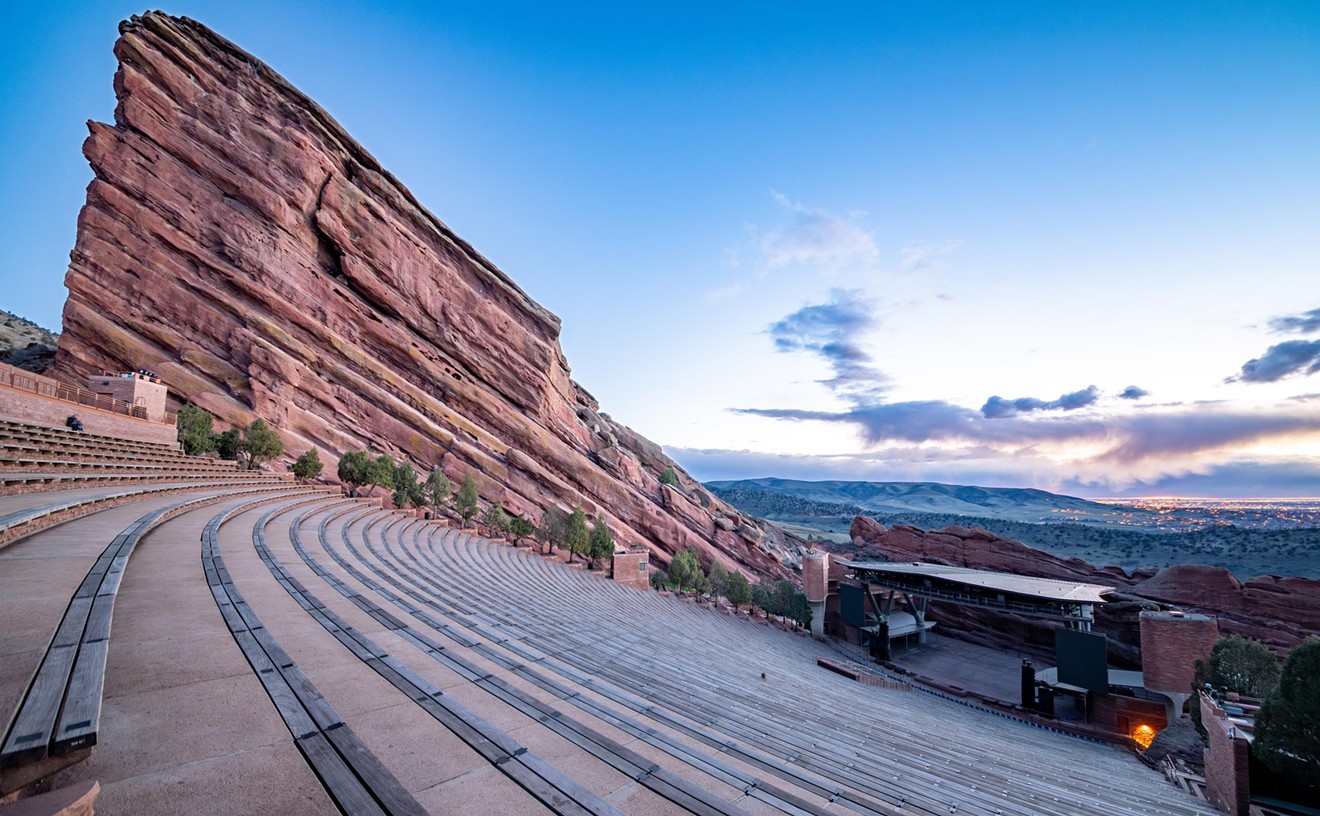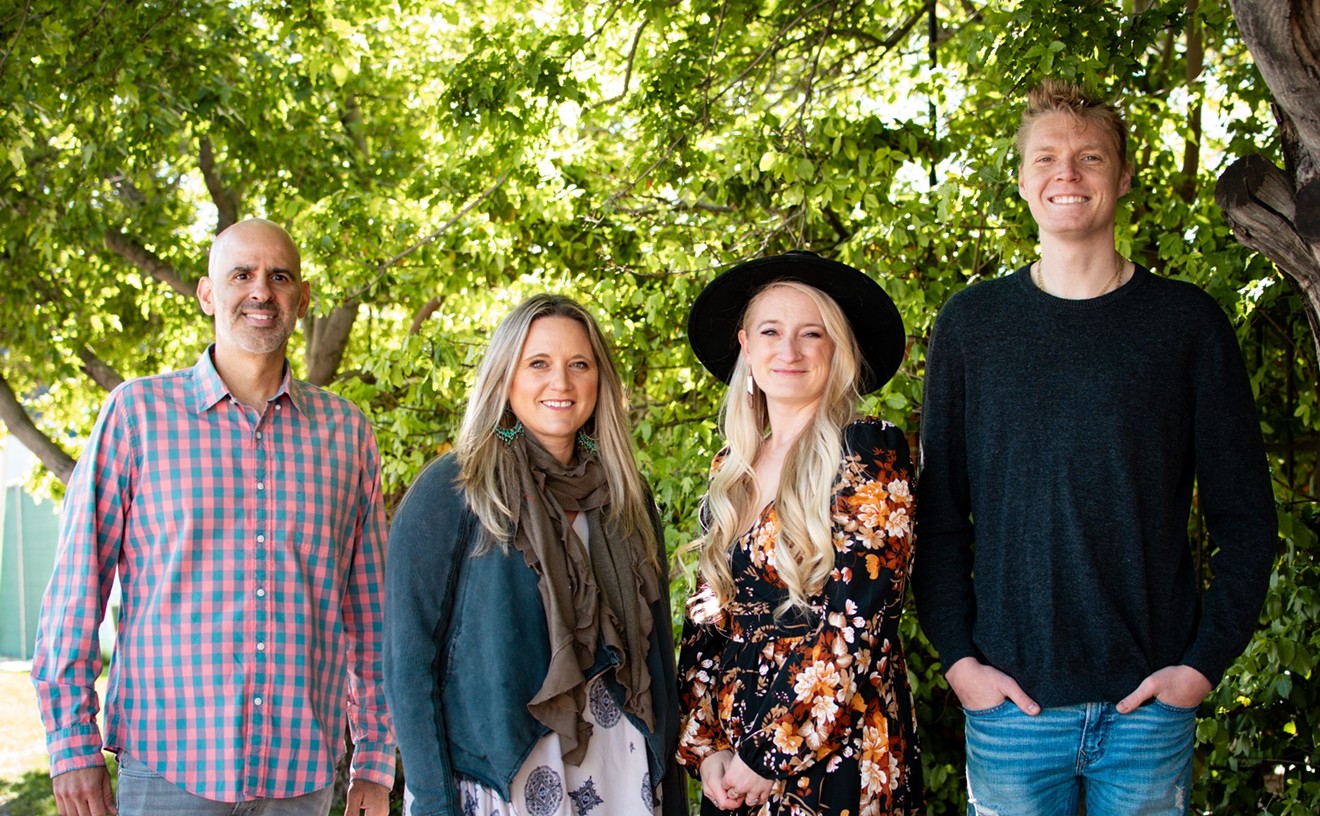Resurrection has multiple meanings this weekend. Not only is Easter Sunday when Christians believe that Jesus rose from the dead and ascended to heaven, but on Saturday, April 16, the Colorado Symphony Chorus will perform Gustav Mahler’s Second Symphony, titled Resurrection, marking its first in-person performance since the beginning of the pandemic.
Choral director Duain Wolfe says Resurrection was a deliberate choice for the chorus's return, even in a "roundabout way."
“The symphony originally wanted to program it last September, to speak to the resurrection of the whole operation," Wolfe says. "But we realized that it was just too dangerous for vocals at that time, since singing produces aerosols, which can be especially hazardous. We wanted to make sure everything would be safe when we came back, so we changed the date to Easter.”
Despite this being its public revival, the chorus itself never quite died in the first place. “In March of 2020, we and most of the rest of the world thought, ‘Well, we'll cancel three weeks of rehearsals, and then we'll be back,'" Wolfe remembers. "You know, the entire world was a little naive — well, a lot naive. We knew that we couldn't perform together for a while, but we had no idea how long a while would be.”
That June, the members realized that things would not be returning to normal anytime soon, and the choral staff had to think of clever ways to stay engaged. This included webinars, panel discussions, interviews and singing over archival recordings of their work.
However, webinars and rehashing old pieces wasn’t always enough, since the chorus had to practice with a conductor. Therefore, it had to resort to less than ideal methods of working on timing and vocal cues. Wolfe thinks back to the unique challenges that this presented.
“It was difficult to rehearse those things, but we did it on Zoom. And, of course, it's very frustrating for everyone, especially if you're the conductor,” he says. “I'm conducting away, and I hear absolutely nothing. They have to put their own mics on mute, because things don't happen simultaneously on Zoom for everyone. And if I give a downbeat, they see it a fraction of a second later or something. So everybody had to be on mute.”
This could be vexing for vocalists, as well. “If they were at home, they may have had to be sequestered in their sauna or something, so they wouldn't disturb everybody else in the family. And all they heard was their own part,” ruminates Wolfe. “So bless their hearts, they hung in there, because that's just not fun.”
While there wasn’t a tangible silver lining in these provisional practice methods, one thing that did come out of it was the insatiable desire to all get back together to start rehearsing. “When we finally were brave enough to get together [this January], we did it in a large church sanctuary where we could still be six feet apart, with everyone in masks and using every other pew, so that everyone felt safe,” says Wolfe. “That's not how we normally rehearse, of course, but everybody was just thrilled to be able to do that.”
This excitement continued to grow as the chorus was able to move back to in-person rehearsals, masked, at three feet apart. Then finally last week, the group moved into Boettcher Concert Hall, masks optional, in normal formation, a little over two years after the world held its breath.
“We have a handful of people who are staying on leave of absence until they feel very safe. And I can't blame them, especially if you are immunocompromised or you have underlying issues,” Wolfe admits. “But otherwise, we have virtually the entire chorus, with the exception of a few people.”
While missing some people might make a difference in a smaller ensemble, the Colorado Symphony Chorus comprises 160 singers, so the dozen it's missing makes little difference.
If the sound was impacted, it certainly wouldn’t have picked Mahler’s Resurrection, which is known for its full-spectrum vocal crescendo from the middle of the fifth movement into its climax. “I can't think of any other piece that has this dynamic range. It goes the softest you can possibly sing all the way to the loudest you can possibly sing,” says Wolfe. “It's glorious, because at first they're singing a cappella of this beautiful, beautiful text that is coming from many miles away. It's almost imperceptible, it's so soft. And then it gets closer and closer and closer until by the end, all the jubilation happens, with the orchestra playing full force. It's terribly, terribly exciting.”
The Colorado Symphony performs Mahler’s Symphony No. 2: Resurrection, Saturday, April 16, at Boettcher Hall in the Denver Performing Arts Complex. Tickets are $15-$89. Get tickets and details here.
[
{
"name": "Air - MediumRectangle - Inline Content - Mobile Display Size",
"component": "12017618",
"insertPoint": "2",
"requiredCountToDisplay": "2",
"watchElement": ".fdn-content-body",
"astAdList": [
{
"adType": "rectangle",
"displayTargets": "mobile"
}
]
},{
"name": "Editor Picks",
"component": "17242653",
"insertPoint": "4",
"requiredCountToDisplay": "1",
"watchElement": ".fdn-content-body",
"astAdList": [
{
"adType": "rectangle",
"displayTargets": "desktop|tablet"
},{
"adType": "rectangle",
"displayTargets": "desktop|tablet|mobile"
}
]
},{
"name": "Inline Links",
"component": "18838239",
"insertPoint": "8th",
"startingPoint": 8,
"requiredCountToDisplay": "7",
"maxInsertions": 25
},{
"name": "Air - MediumRectangle - Combo - Inline Content",
"component": "17261320",
"insertPoint": "8th",
"startingPoint": 8,
"requiredCountToDisplay": "7",
"maxInsertions": 25,
"watchElement": ".fdn-content-body",
"astAdList": [
{
"adType": "rectangle",
"displayTargets": "desktop|tablet"
},{
"adType": "rectangle",
"displayTargets": "desktop|tablet|mobile"
}
]
},{
"name": "Inline Links",
"component": "18838239",
"insertPoint": "8th",
"startingPoint": 12,
"requiredCountToDisplay": "11",
"maxInsertions": 25
},{
"name": "Air - Leaderboard Tower - Combo - Inline Content",
"component": "17261321",
"insertPoint": "8th",
"startingPoint": 12,
"requiredCountToDisplay": "11",
"maxInsertions": 25,
"watchElement": ".fdn-content-body",
"astAdList": [
{
"adType": "leaderboardInlineContent",
"displayTargets": "desktop|tablet"
},{
"adType": "tower",
"displayTargets": "mobile"
}
]
}
]











